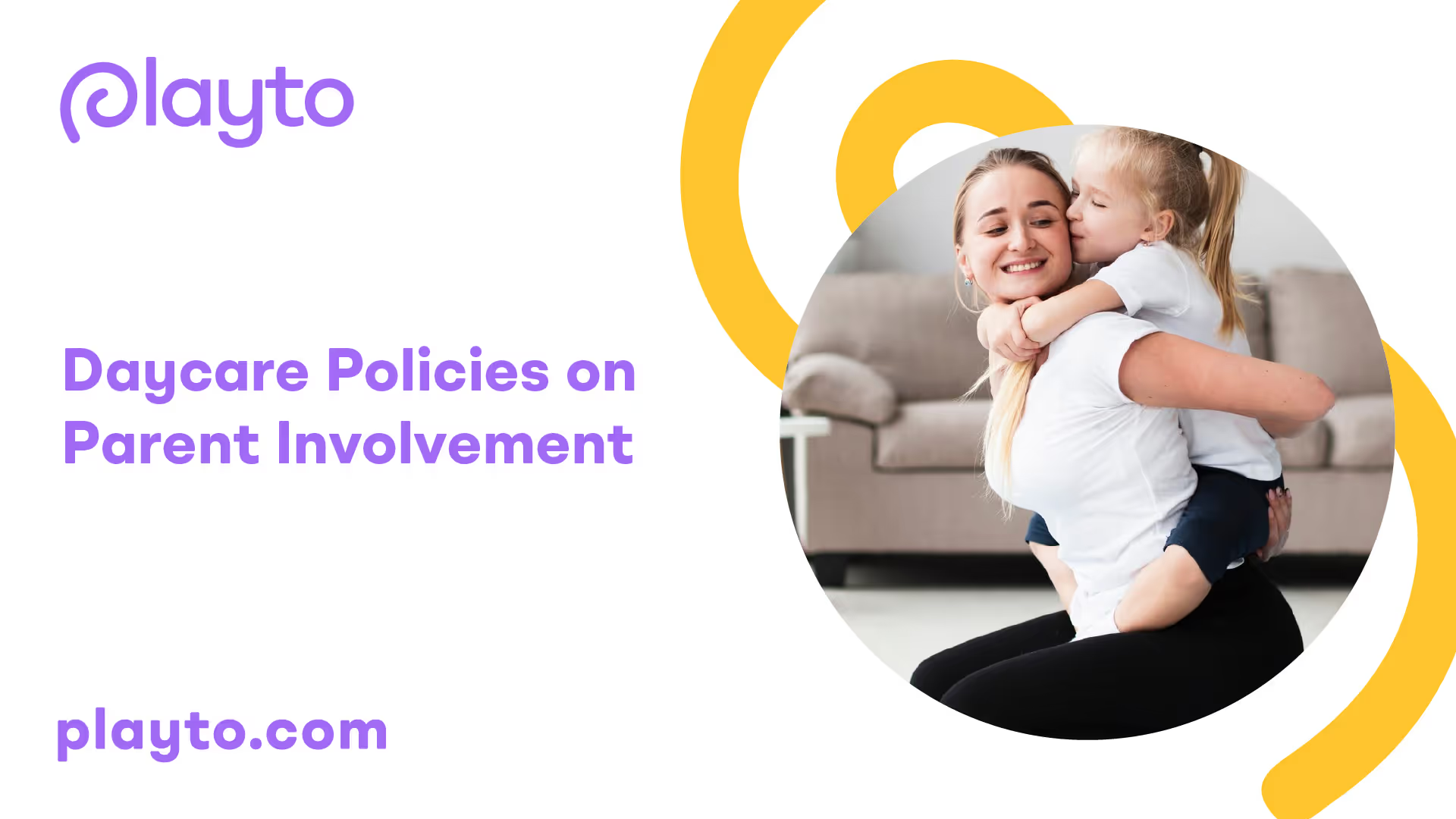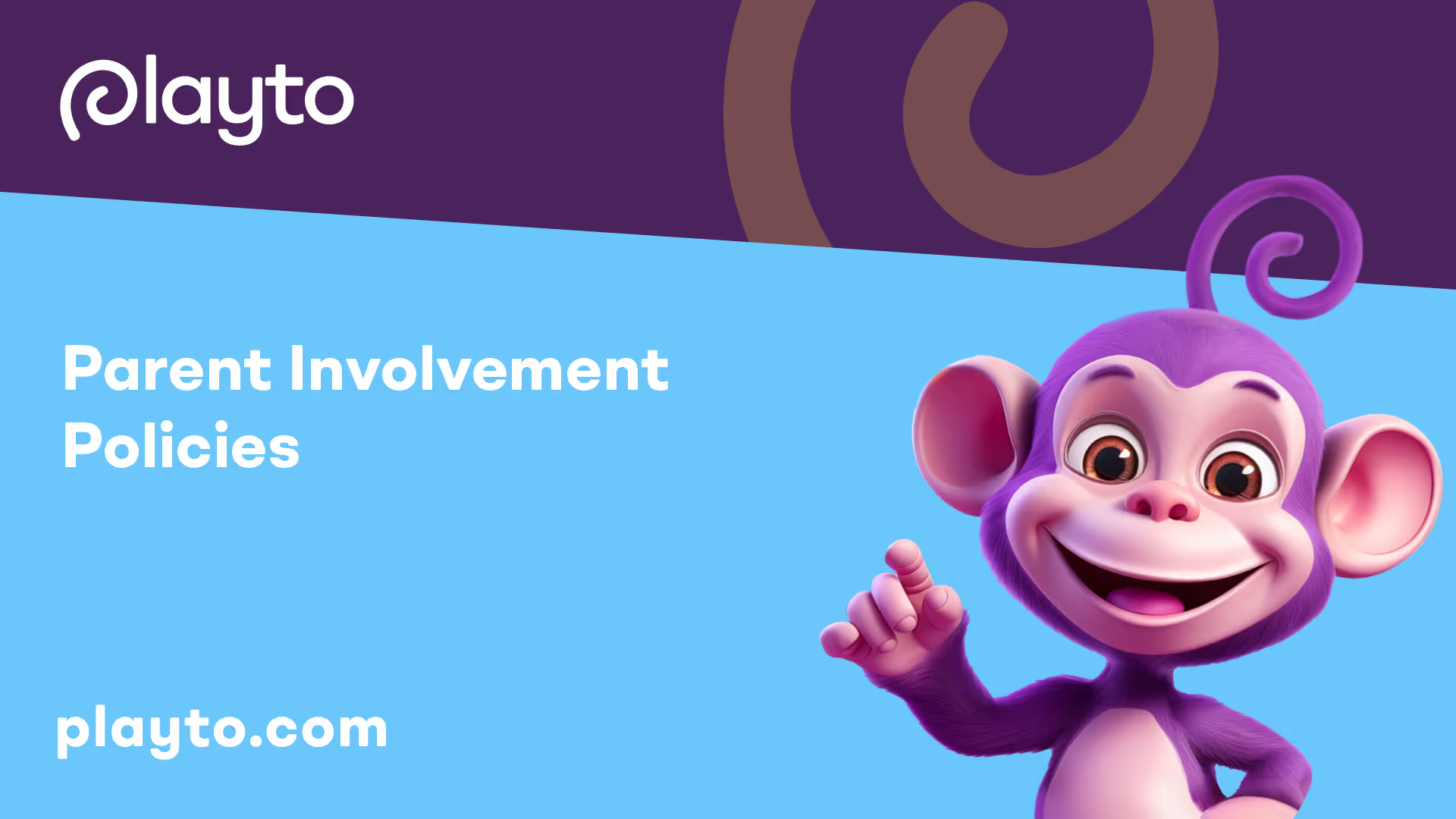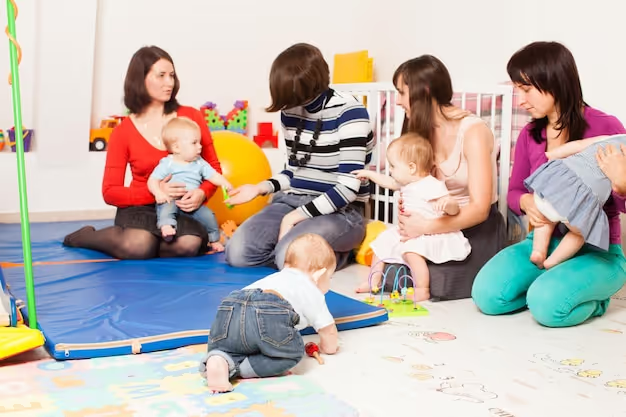
Importance of Parental Involvement
Recognizing the significance of parental involvement in early childhood education is crucial for the overall development of children. When parents actively engage in their child's daycare experience, it positively impacts various aspects of their growth, including their behavior, cognitive achievement, and emotional well-being. This involvement sets the stage for their future educational success.
Impact on Child Development
Studies have shown that parental involvement plays a vital role in shaping a child's development. According to Little Scholars NYC, children whose parents are actively engaged in their daycare experience tend to exhibit improved behavior, higher academic performance, and enhanced social skills. The collaborative effort between parents and daycare providers creates a holistic support system that reinforces learning and fosters positive attitudes.
Benefits of Parent Participation
When parents actively participate in daycare programs, it brings a host of benefits to both the child and the educational setting. According to 4-C, involving parents in program-level decisions, activities, and providing input about programming not only strengthens the sense of community but also enhances the quality of care and education provided. It creates a welcoming and inclusive environment where families feel valued, heard, and connected to their child's early education journey.
The benefits of parent participation extend beyond the daycare setting. According to Brightwheel, family involvement in preschool positively impacts academic outcomes by reinforcing learning at home. It creates a strong foundation for a child's educational success, promoting positive attitudes towards learning and fostering continuous growth. Additionally, family engagement offers emotional and social support, contributing to a child's overall well-being.
To ensure optimal child development, it is essential for daycare centers to actively encourage and facilitate parental involvement. By promoting two-way communication, providing shared resources and information, and fostering a collaborative partnership between educators and families, daycare centers can create an environment that maximizes the benefits of parent participation. For more information on specific daycare policies related to parental involvement, refer to our articles on daycare policies on photography and social media, daycare policies on celebrating birthdays, daycare policies on parent-teacher conferences, daycare policies on holiday celebrations, daycare policies on outdoor play, and daycare policies on sick children.
Daycare Parent Handbooks
When it comes to daycare policies, parent handbooks play a crucial role in providing important information and guidelines for parents. These handbooks serve as a valuable resource that outlines various policies and procedures to ensure smooth communication, health and safety, and emergency preparedness. Let's explore the key sections typically found in daycare parent handbooks: communication policies, health and safety guidelines, and emergency procedures.
Communication Policies
Clear and effective communication between parents and daycare staff is essential for maintaining a strong partnership in the child's care and development. Daycare parent handbooks should include information on how parents can communicate with teachers or staff members, outlining how often they can call or visit, as well as any other important policies such as parent-teacher conferences or events. Establishing these communication guidelines helps foster a collaborative relationship and ensures that parents stay informed about their child's progress and daily activities.
Health and Safety Guidelines
Daycare centers prioritize the health and safety of children under their care. Parent handbooks should clearly outline the health and safety regulations in place at the daycare center to help parents feel secure about the care their children receive. This section may cover topics such as sick children policies, hygiene practices, medication administration procedures, and allergy protocols. By providing detailed information about these guidelines, parents can have peace of mind knowing that their child's well-being is a top priority.
Emergency Procedures
Including emergency procedures in the daycare's parent handbook is crucial to inform parents about what to do in emergency situations and to reduce the daycare's liability. This section should provide clear instructions on how parents will be notified in case of emergencies, such as natural disasters, fire drills, lockdown protocols, or medical emergencies. It should also include any necessary forms or permissions required for emergency contact information. By outlining these procedures, parents can feel confident that the daycare center is prepared to handle unexpected situations and prioritize the safety of their children.
By including these sections in daycare parent handbooks, daycare centers can ensure effective communication, maintain a safe environment, and provide parents with the necessary information to navigate emergency situations. Parent handbooks should also cover other relevant policies, such as photography and social media guidelines, celebrating birthdays, and outdoor play policies. These comprehensive handbooks promote transparency, trust, and a collaborative relationship between the daycare center and parents.

Parent Involvement Policies
To create a nurturing and collaborative environment in daycare centers, it is essential to establish clear parent involvement policies. These policies outline the expectations and guidelines for parents' participation in their child's education and the daycare community. Two key aspects of parent involvement policies are supporting child development and establishing a code of conduct and discipline.
Supporting Child Development
Parental involvement plays a crucial role in supporting a child's development. By actively engaging in their child's education, parents can ensure that their child receives the necessary support to reach their full potential. Research from Little Scholars NYC shows that parental involvement in early childhood education leads to better academic outcomes and a more positive experience for children.
Daycare centers should encourage parent participation through various means, such as:
- Regular Communication: Providing regular updates on a child's progress, activities, and milestones allows parents to stay informed and actively engage in their child's development. This can be done through newsletters, emails, or a dedicated parent communication platform.
- Parent-Teacher Conferences: Holding regular conferences where parents can discuss their child's development, strengths, and areas for improvement promotes open dialogue between parents and teachers. This collaboration helps create a holistic support system for the child's learning journey.
- Family Engagement Activities: Organizing events and activities that involve both parents and children fosters a sense of community and strengthens the partnership between parents and daycare staff. These activities can include workshops, family outings, or volunteer opportunities within the daycare center.
By implementing these strategies, daycare centers can encourage parents to actively participate in their child's education and promote a positive learning environment.
Code of Conduct and Discipline
Establishing a code of conduct and discipline is essential to maintain a safe and respectful environment within the daycare center. These policies provide guidelines for behavior expectations and ensure consistency in addressing behavior issues. Parents should be familiar with these policies and actively support them to maintain a cohesive and harmonious community.
Key elements of a code of conduct and discipline policy may include:
- Respectful Behavior: Parents should be encouraged to model and reinforce respectful behavior towards staff, other parents, and children. This includes promoting positive communication and resolving conflicts in a constructive manner.
- Guidelines for Behavior Management: The policy should outline the approach to discipline, emphasizing positive discipline techniques that focus on teaching and guiding children rather than punitive measures. This includes promoting problem-solving skills, using redirection, and setting clear expectations.
- Collaboration: Parents should understand the importance of collaborating with daycare staff to address any behavioral concerns. Open and honest communication allows for effective problem-solving and ensures that all parties involved are working together to support the child's development.
By establishing a clear code of conduct and discipline policy, daycare centers can create a respectful and supportive environment that benefits both children and parents. For more information on daycare policies, you can explore our articles on daycare policies on photography and social media, daycare policies on celebrating birthdays, and daycare policies on parent-teacher conferences.
Remember, parental involvement is a key component of a successful daycare experience. By fostering a strong partnership between parents and daycare staff, children can thrive in their early childhood education journey.
Addressing Developmental Concerns
When it comes to daycare policies on parent involvement, addressing developmental concerns is a crucial aspect of ensuring the well-being and optimal development of children. Early intervention plays a significant role in identifying and addressing any potential developmental delays or challenges that a child may be experiencing. Effective communication strategies are essential in facilitating discussions between daycare providers and parents regarding these concerns.
Early Intervention Importance
Child care providers have the responsibility to discuss any concerns they may have about a child's development with the child's family as soon as possible. Early intervention can have a significant impact on a child's quality of life, learning, and overall development [1]. Identifying and addressing developmental delays early on can lead to more effective interventions and support, improving the child's outcomes in the long run.
When child care providers need to bring up concerns about a child's development with parents, it is important to approach the conversation with respect and gentleness. Providers are encouraged to explain their concerns in a gentle manner, encourage parents to observe the child, and allow them time to notice the shared observations [1]. This collaborative approach fosters open communication and encourages parents to actively participate in the child's developmental journey.
Effective Communication Strategies
In daycare settings, it is crucial to view parents as equal partners in providing the best care for their child. Establishing positive relationships and effective communication is key to successful engagement between daycare providers and parents [2]. Here are some strategies for effective communication when addressing developmental concerns:
- Listen with empathy: Actively listen to parents' concerns, showing understanding and empathy for their perspective. This helps establish trust and fosters a collaborative approach in addressing developmental concerns.
- Share observations: Share specific observations and examples of the child's behavior or development that raise concerns. Being specific helps parents understand the areas of concern and encourages shared observations.
- Provide resources: Offer information and resources that may help parents better understand the developmental aspects being discussed. This can include books, articles, or online resources that provide additional support and guidance.
- Collaborative problem-solving: Engage in collaborative problem-solving with parents to come up with strategies and interventions that can support the child's development. Encourage parents to share their insights and ideas, promoting a sense of partnership.
By adopting these effective communication strategies, daycare providers can address developmental concerns in a respectful and supportive manner. This collaborative approach ensures that parents feel valued and involved in their child's developmental journey, leading to better outcomes for the child.

Enhancing Family Engagement
To create a strong partnership between daycare centers and families, enhancing family engagement is crucial. By fostering two-way communication and providing shared resources and information, daycare centers can promote active involvement and meaningful collaboration with parents.
Two-Way Communication
Effective communication between daycare centers and families should be timely, continuous, and in various forms to accommodate different language preferences [3]. Communication should be initiated by both the center and the families, creating a dynamic exchange of information and feedback.
Daycare centers can utilize various communication channels to engage with parents. This can include regular newsletters, email updates, parent-teacher conferences, and online platforms where parents can access important information about their child's development and upcoming events. By keeping the lines of communication open, daycare centers can ensure that parents are well-informed and have the opportunity to actively participate in their child's daycare experience.
It is also important for daycare centers to be responsive to parent inquiries, concerns, and suggestions. By promptly addressing any issues or questions raised by parents, centers can demonstrate their commitment to maintaining a strong partnership with families.
Shared Resources and Information
Sharing resources and information between daycare centers and families can significantly enhance family engagement and promote a collaborative relationship [3]. By providing families with access to educational materials, parenting resources, and information about community events, daycare centers can support parents in their role as their child's first teacher.
Daycare centers can establish a resource library or online platform where parents can find helpful articles, tips, and activities to further their child's development at home. This shared knowledge can empower parents and strengthen their involvement in their child's learning.
Additionally, daycare centers can organize workshops or information sessions for parents on various topics such as child development, positive discipline strategies, and early literacy. These opportunities for learning and discussion can deepen parents' understanding of their child's experiences at daycare and provide them with valuable tools and insights.
By embracing two-way communication and sharing resources and information, daycare centers can foster a collaborative and supportive partnership with families. This engagement not only benefits the child's development but also creates a sense of belonging, trust, and satisfaction for both the parents and the daycare center. For more information on other daycare policies related to parent involvement, check out our articles on daycare policies on photography and social media and daycare policies on celebrating birthdays.
Strategies for Boosting Participation
To encourage active parental involvement in daycare programs, there are various strategies that can be implemented. These strategies aim to foster a strong partnership between parents and daycare providers, creating a supportive and engaging environment for children. Two effective approaches for boosting participation are educational activities at home and community events and newsletters.
Educational Activities at Home
Engaging parents in educational activities at home can have a positive impact on a child's learning and development. By providing learning activities for the home, daycare providers can encourage and support families in creating a learning environment beyond the daycare program. These activities can be designed to align with the curriculum and focus on specific skills or concepts that children are learning at daycare.
Educational activities at home can include simple ideas such as reading together, practicing counting or letter recognition, or engaging in hands-on science experiments. The activities should be age-appropriate and enjoyable for both the child and the parent. Regularly sharing these activities with parents through newsletters or online platforms can provide guidance and inspire them to actively participate in their child's learning journey.
To further enhance engagement, daycare providers can encourage parents to share their experiences and outcomes of these activities. This creates a sense of collaboration and allows for a deeper connection between parents, children, and the daycare program. For more information on boosting family participation, check out our article on daycare policies on parent-teacher conferences.
Community Events and Newsletters
Regularly hosting community events and sending newsletters are effective strategies to foster family participation in daycare programs. Community events provide opportunities for families to come together, build relationships, and celebrate the achievements of their children. It's important to include a variety of events that cater to different interests and schedules, ensuring that all families can participate. These events can range from picnics and cultural celebrations to art exhibitions or parent-child workshops.
In addition to community events, newsletters are an excellent means of communication between the daycare and parents. Newsletters can contain important updates, upcoming events, and highlights of children's activities and accomplishments. They can also provide information on educational resources, parenting tips, and ways to support children's learning at home. By regularly sharing information and updates, newsletters keep parents informed and engaged in their child's daycare experience.
Utilizing digital platforms such as email or apps like brightwheel can streamline the distribution of newsletters and event announcements. These platforms allow for easy communication, feedback, and the sharing of photos and videos, creating a sense of community and involvement. For more strategies on boosting family participation, explore our article on daycare policies on photography and social media.
By implementing these strategies, daycare providers can create an environment where parents feel valued and empowered to actively participate in their child's education. Through educational activities at home and engaging community events and newsletters, parents can play an integral role in supporting their child's learning and development both inside and outside the daycare setting.
References
- [1]: https://childcare.extension.org/tips-for-child-care-providers-to-communicate-with-parents-their-concerns-about-a-childs-development/
- [2]: https://exchangepress.com/article/handling-difficult-moments-with-demanding-families/
- [3]: https://www.4-c.org/child-care-business-practices/involving-parents-to-improve-your-child-care-program/
